By Deaglán de Bréadún
The recent passing of John Hume evoked comparisons with other Irish leaders who sought in their time to advance the cause of Irish self-government and independence by peaceful means. The greatest achievement of Daniel O’Connell (1775-1847) was Catholic Emancipation: he played a leading role in ending the ban on Catholics from sitting in parliament and holding senior government offices. He went on to launch an unsuccessful but non-violent campaign to repeal the Act of Union with Great Britain so that Ireland would have her own parliament back again, with a more-inclusive membership.
The other contender for greatest non-violent leader was Charles Stewart Parnell (1846-91) who used obstructionist tactics in the British parliament to promote the cause of land reform and the rights of tenant farmers. As leader of the Irish Parliamentary Party he also made impressive progress towards achieving the objective of Home Rule for Ireland by constitutional means. But it all went wrong for him when his adulterous relationship with Kitty O’Shea, wife of one of his Members of Parliament, came to light.
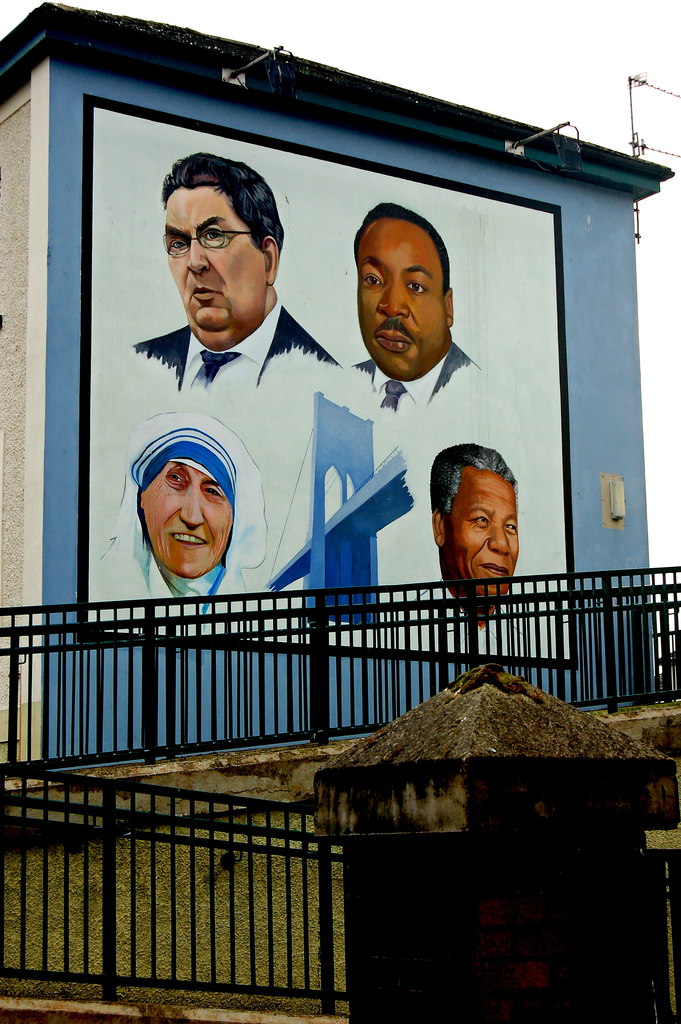
Photo: Joseph Mischyshyn /wikipedia
So what were the achievements of John Hume (1937-2020) and how to do they compare with those of O’Connell and Parnell? The most obvious one was the leading role he played in persuading the Provisional IRA to lay down their arms so that their political counterparts in the Sinn Féin party could fully participate in the political process. There were some critics who felt he should have kept the Provos at bay and that it was a mistake to facilitate the entrance of Sinn Féin to the stage of “normal” politics, because it reduced the status of his own Social Democratic and Labour Party (SDLP) to the second rank on the nationalist side of the fence in Northern Ireland. Most observers would however take the view that the demotion of the SDLP (for the time being anyway) was a price worth paying in the cause of peace.
Who is right? There is a school of thought that the IRA campaign had reached its maximum potential, with a significant level of infiltration by the British security services and that there was no real need to “buy the republicans off” by opening the door to political power.
Many would disagree, on the basis that even if the IRA could not achieve ultimate victory the organisation could still cause significant death and destruction, with loyalist paramilitaries responding in kind.
Hume was himself a sharp critic of the IRA. He was a complete believer in non-violent politics and that a better society could be achieved, as he put it in one of his famous phrases, “by spilling our sweat and not our blood”. He felt that politics should be about the living standards of ordinary people: another of his trademark lines, inherited from his father, was that “you can’t eat a flag.”
The problem facing Hume and other proponents of a peaceful resolution of the conflict was to secure enough concessions from the British Government to persuade the IRA to call off its campaign and take the purely political path. The British were of course keen to see an end to the Provisional campaign but they wanted to keep the unionist side happy at the same time.
This was where John Hume came into the picture. He wasn’t the only aspiring peacemaker, but he had a high profile and considerable influence. If he had been as selfish as politicians are sometimes portrayed, he could have led a quiet and comfortable existence on a substantial salary and expenses, issuing an occasional pronouncement to maintain his support-level.
But that’s not what the Derryman was about. His career in public life began in the local Credit Union, set up to assist ordinary people to meet financial demands and live a more comfortable existence. Derry, or Londonderry as unionists prefer to call it, was a challenging place to live, especially for the Catholic and mainly nationalist community. The struggle for equality and a decent life took a political turn with the emergence of the civil rights movement, inspired by and based upon the African-American model established by Martin Luther King and others.
Unfortunately the British and Northern Ireland system of administration failed to resolve the issues raised by the non-violent civil rights agitation and a situation developed where we seemed to be on the verge of Armageddon. The introduction of one-sided internment (nationalists only) without trial on August 9th-10th 1971 and the fatal shooting of 14 unarmed protesters in Derry on Bloody Sunday in 1972 gave increased impetus to an IRA campaign that would last for many years in a conflict that resulted in a total of more than 3,600 deaths, including all ages and sections of the community.
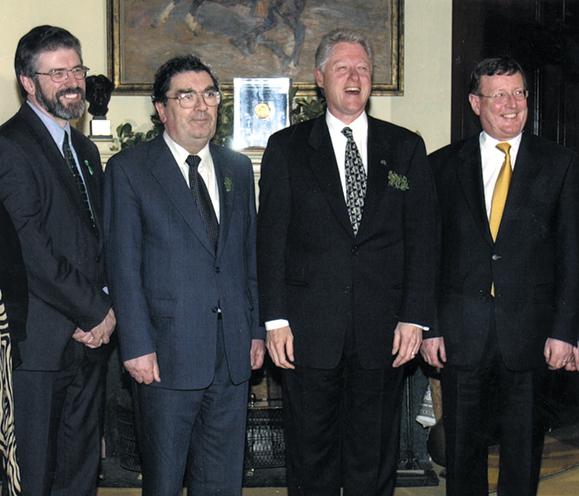
To his credit, Hume stayed the course although the strain must have been enormous at times. He had the wit to recruit allies in the U.S. such as Tip O’Neill, Ted Kennedy and Bill Clinton – to name but three – and among elements of the political class in Dublin and that helped to increase pressure on the British, who encouraged the unionists in turn to take a more conciliatory stance. Few public figures can have gone through what Hume endured on the path to peace, which finally culminated in the Good Friday Agreement on April 10th 1998. The following December in Oslo, himself and his unionist counterpart David Trimble were awarded the Nobel Peace Prize. Inevitably there would be bumps along the way but a start had been made on the road to reconciliation. Looking back on it all, you have to conclude that O’Connell and Parnell would approve of Hume’s actions and, in his position, would probably have done the same. At the moment we have statues of the first two gentlemen on Dublin’s main thoroughfare, O’Connell Street, and someone should find a spot in between for a monument to John Hume.
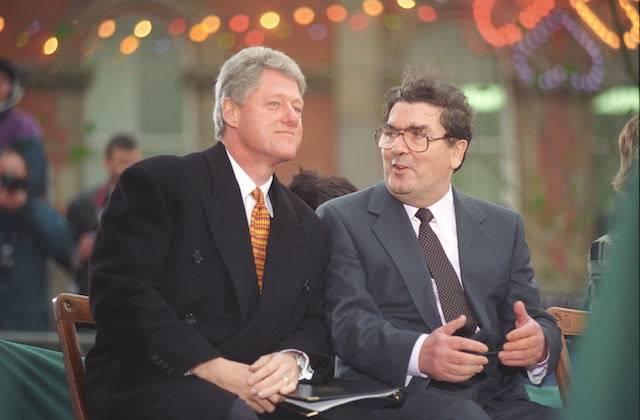
Photo: Sharon Farmer White House Photograph Office
John Hume: Born January 18th 1937, died August 3rd 2020; survived by his wife Pat and children Thérèse, Áine, Aidan, John and Mo, brothers Patsy and Jim, grandchildren and great-grandchildren.
Return to the John Hume tribute page.
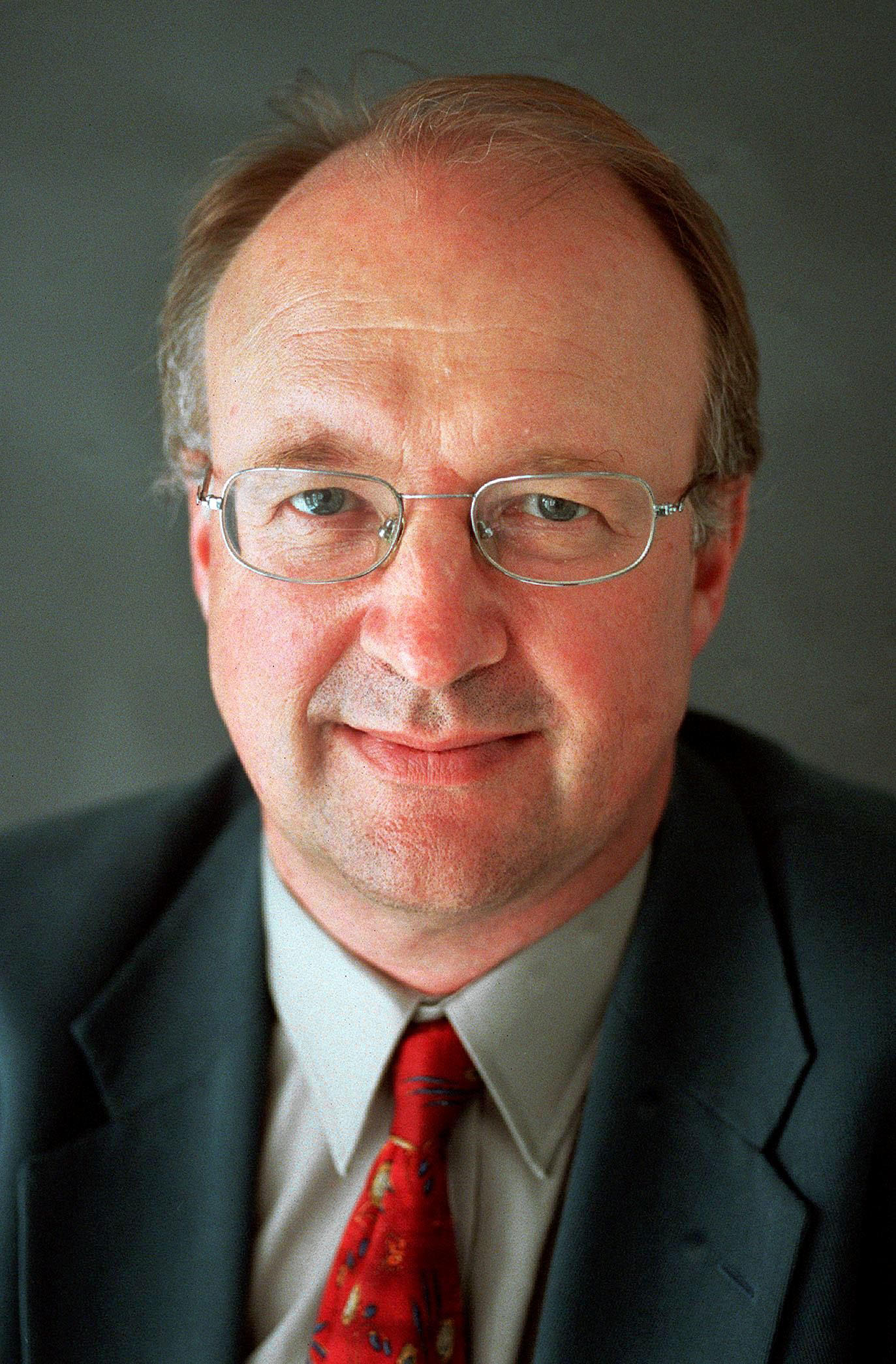
Deaglán de Bréadún is a freelance journalist and author based in Dublin. He is a columnist with The Irish News and his books include ‘The Far Side of Revenge: Making Peace in Northern Ireland’ and ‘Power Play: The Rise of Modern Sinn Féin’ as well as three books in Irish. His reporting on the Good Friday Agreement negotiations and their aftermath for The Irish Times won the Northern Ireland IPR/BT award for Daily News Journalist of the Year.

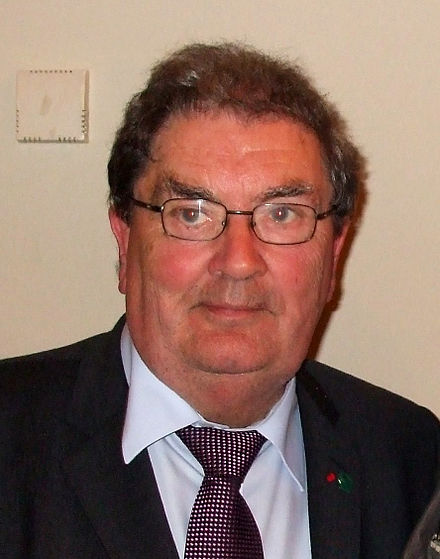
Leave a Reply